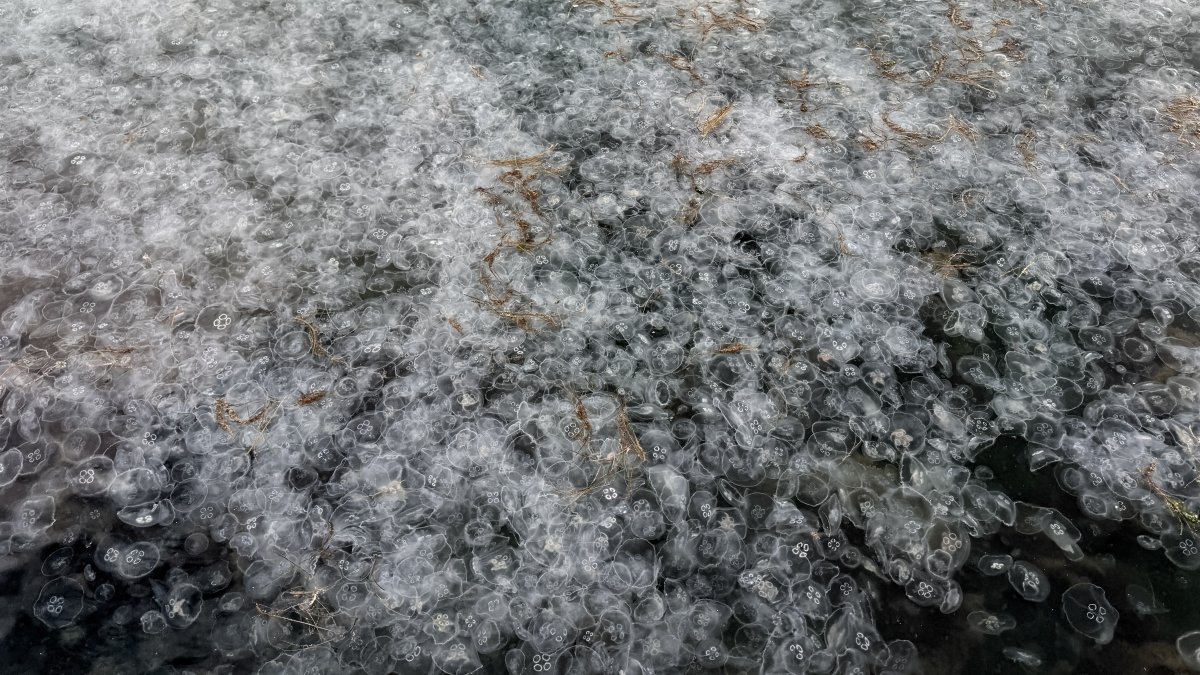The Black Sea’s jellyfish population is on the rise due to a combination of factors, including high sea temperatures, overfishing, changes in the natural cycle and pollution, experts say.
Thousands of jellyfish were spotted in the inner harbor of Sinop, a city with a 175-kilometer (109-mile) coastline, raising concerns among scientists and locals.
Speaking to Anadolu Agency (AA), professor Levent Bat, head of the Department of Basic Sciences at Sinop University’s Faculty of Fisheries, said multiple factors could explain the unusual concentration of jellyfish at this time of year.
“In previous studies, we observed similar scenes, especially along the Samsun coast,” Bat said, noting that jellyfish have been increasingly visible along Sinop’s shores since February.
Bat highlighted climate change as a primary driver of the increase, explaining that warmer coastal waters provide a more suitable environment for jellyfish.
“Rising sea temperatures due to climate change could be a significant factor,” he said. “Jellyfish tend to move to areas where the water is warmer. Additionally, overfishing reduces the population of fish that compete with jellyfish for food, such as zooplankton, leaving more available resources for jellyfish.”
Another reason for the surge in jellyfish numbers is the presence of invasive species, Bat noted. He said that in recent years, foreign marine species – often introduced through ship ballast water or by attaching to vessels – have been found in the Black Sea, indicating shifts in the region’s ecosystem.
“These invasive species could be contributing to the increase in jellyfish,” he said. “Their presence suggests that the Black Sea’s ecosystem is gradually changing.”
Bat also pointed to pollution as a contributing factor, particularly coastal pollution from household waste.
“Even mild pollution can lead to an increase in nutrients in the water, creating a more favorable environment for jellyfish,” he said. “When all these factors come together, we see a significant rise in jellyfish populations.”
Scientists continue to monitor the situation, as the increase in jellyfish could have long-term effects on the Black Sea’s ecosystem and fisheries.




















































Be First to Comment